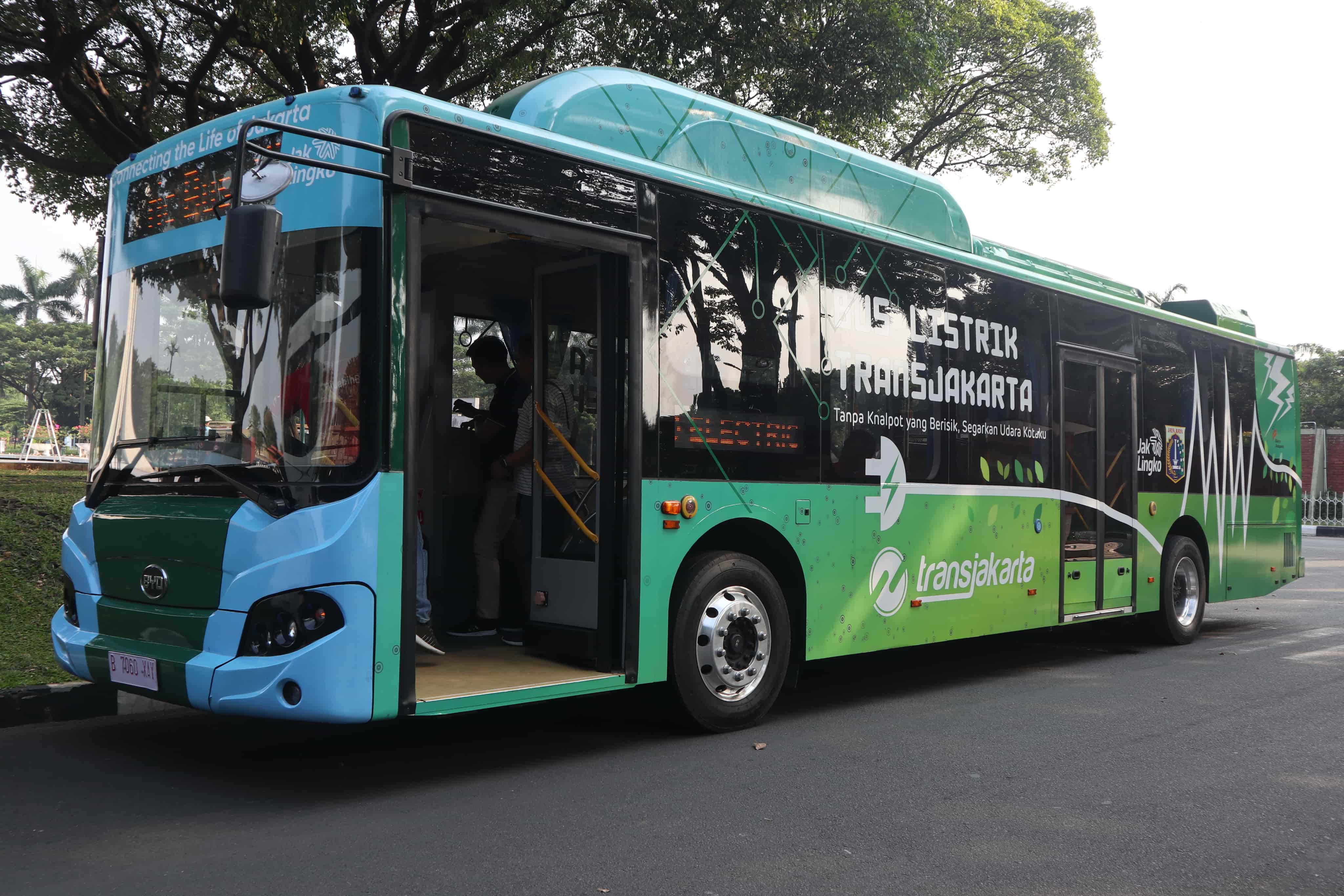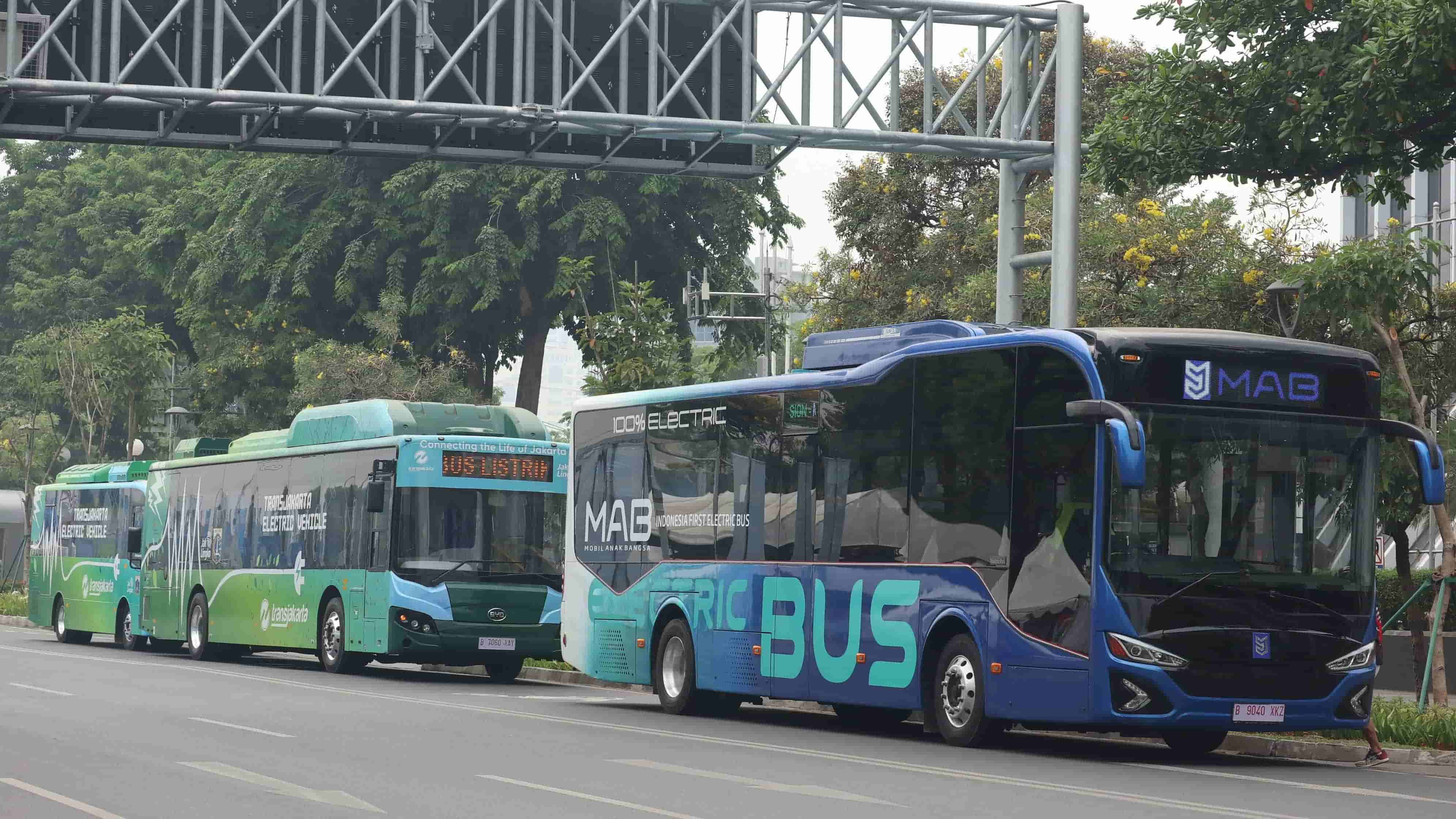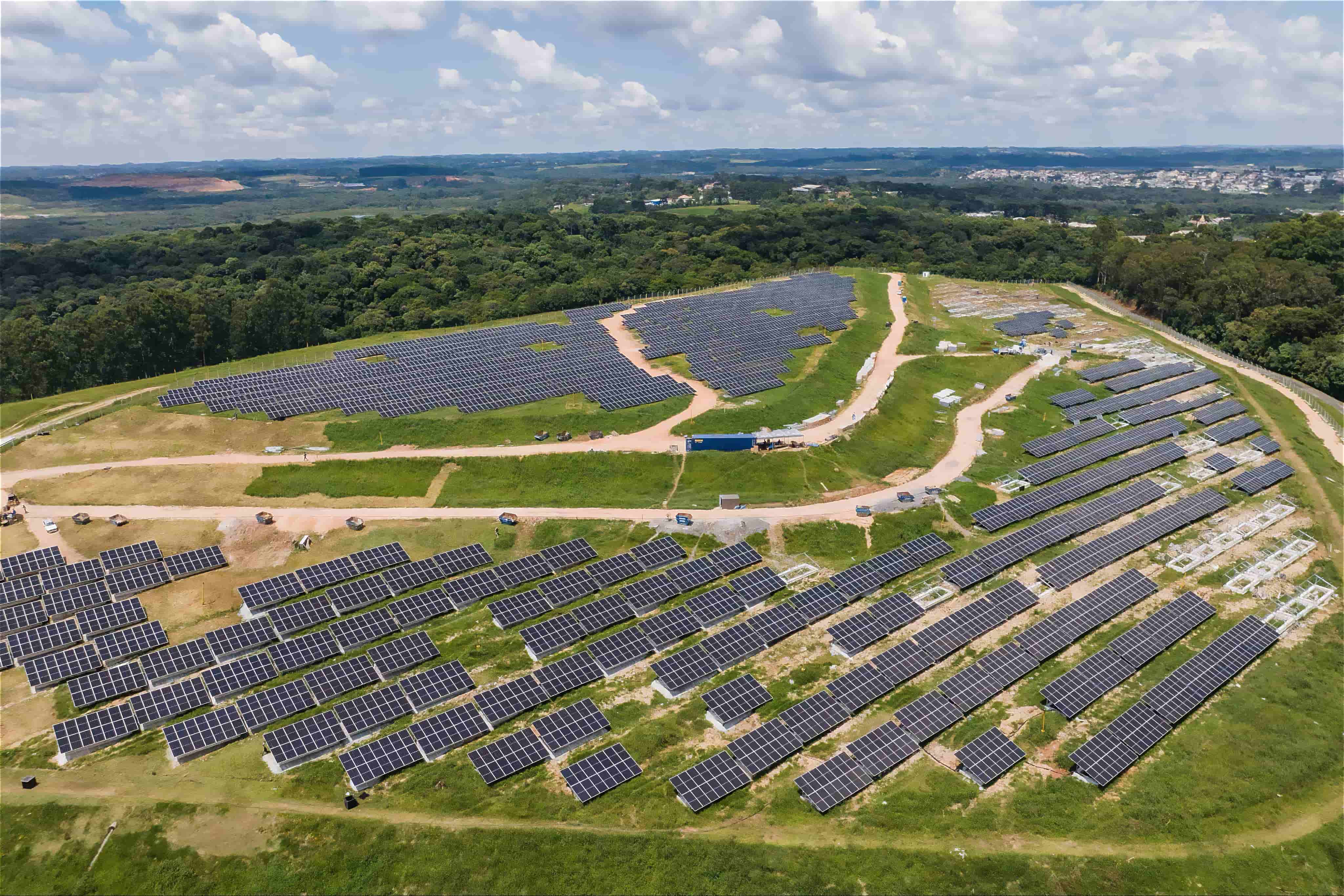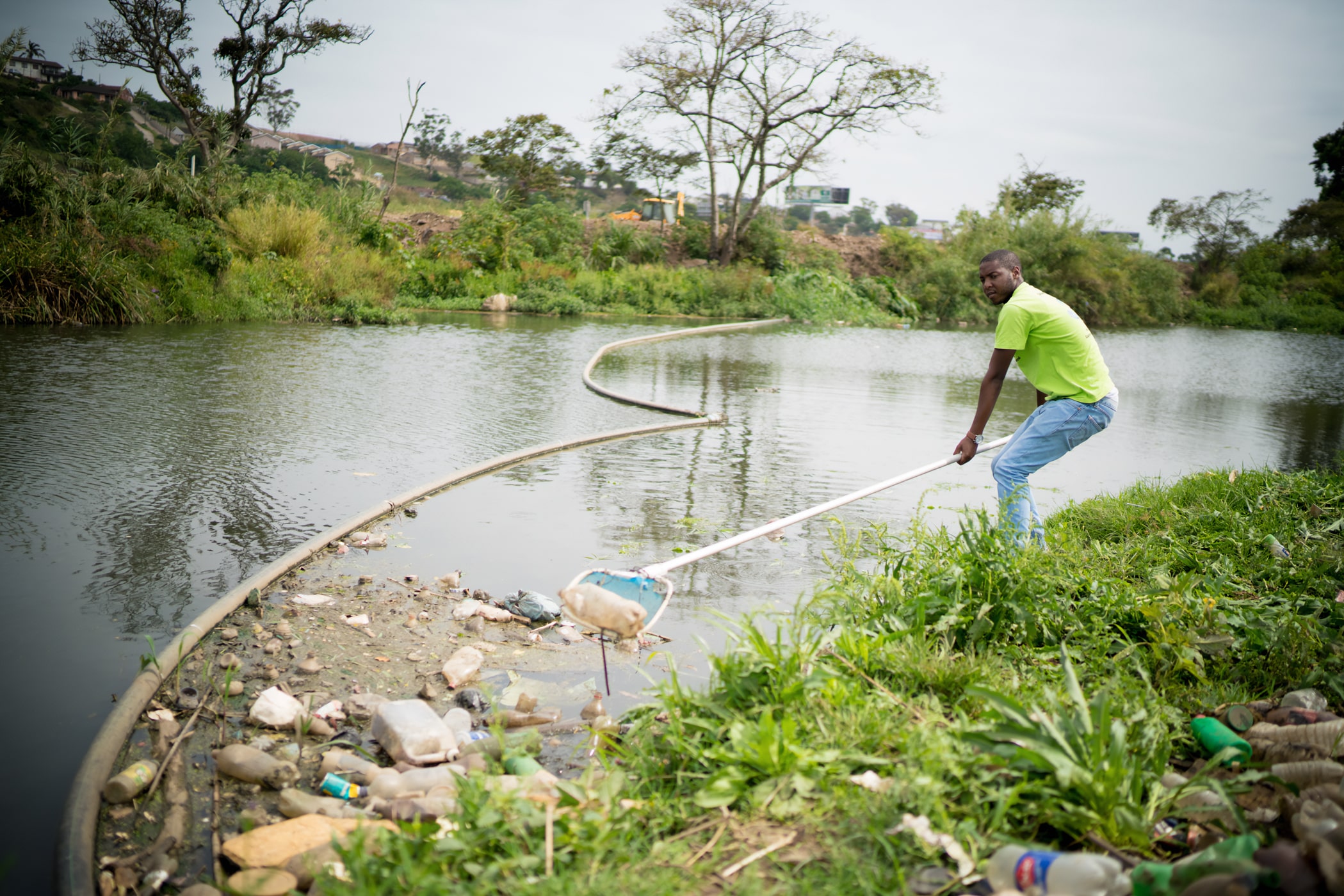100 E-Buses for Jakarta’s Sustainable Mobility Transition
Jakarta has introduced 300 e-buses into its fleet under the umbrella of Transjakarta BRT, as the city aims towards 100% electrification of its fleet by 2030. With 60% of Jakarta’s residents suffering from diseases related to air pollution, improving air quality is a key priority for Jakarta’s government. By deploying e-buses to replace diesel vehicles, the city is helping to reduce premature deaths and hospitalisation of residents.
ABOUT
Mobility
Finance leveraged:
€25,380,000
GHG reduction by 2050:
557,535 tonnes of CO₂e
Project status:
Implemented
IMPACT
The e-bus pilot also demonstrated the use of a public-private partnership in e-bus operations through a Buy-the-Service model where the bus operators incur the costs of purchasing the buses and TransJakarta pays for the kilometers run. The setup reduces the burden on Jakarta’s finances while maintaining service quality. The model is still in use as Jakarta continues to convert their diesel-fueled fleet to e-buses.
The initial 100 e-buses were projected to service 45,000 passengers per day and could help the city avoid 100,461 tCO₂e of emissions. Further emissions are also possible with measures such as the installation of solar PV on bus depots, bus stops, and terminals for charging.
After the 100 e-bus pilot, Jakarta continued to scale up their e-bus transition. By the end of 2024, the city had 200 e-buses covering seven routes, including the BRT. The city also plans to electrify minibuses, articulated buses, and other rolling stock with the aim of 100% electrification by 2030.
Through the pilot, Jakarta positioned itself as a national leader in bus electrification. Through CFF support, the city shared its experience with Bandung through a workshop. Other Indonesian cities such as Surabaya and Semarang have also begun transitioning to e-buses.
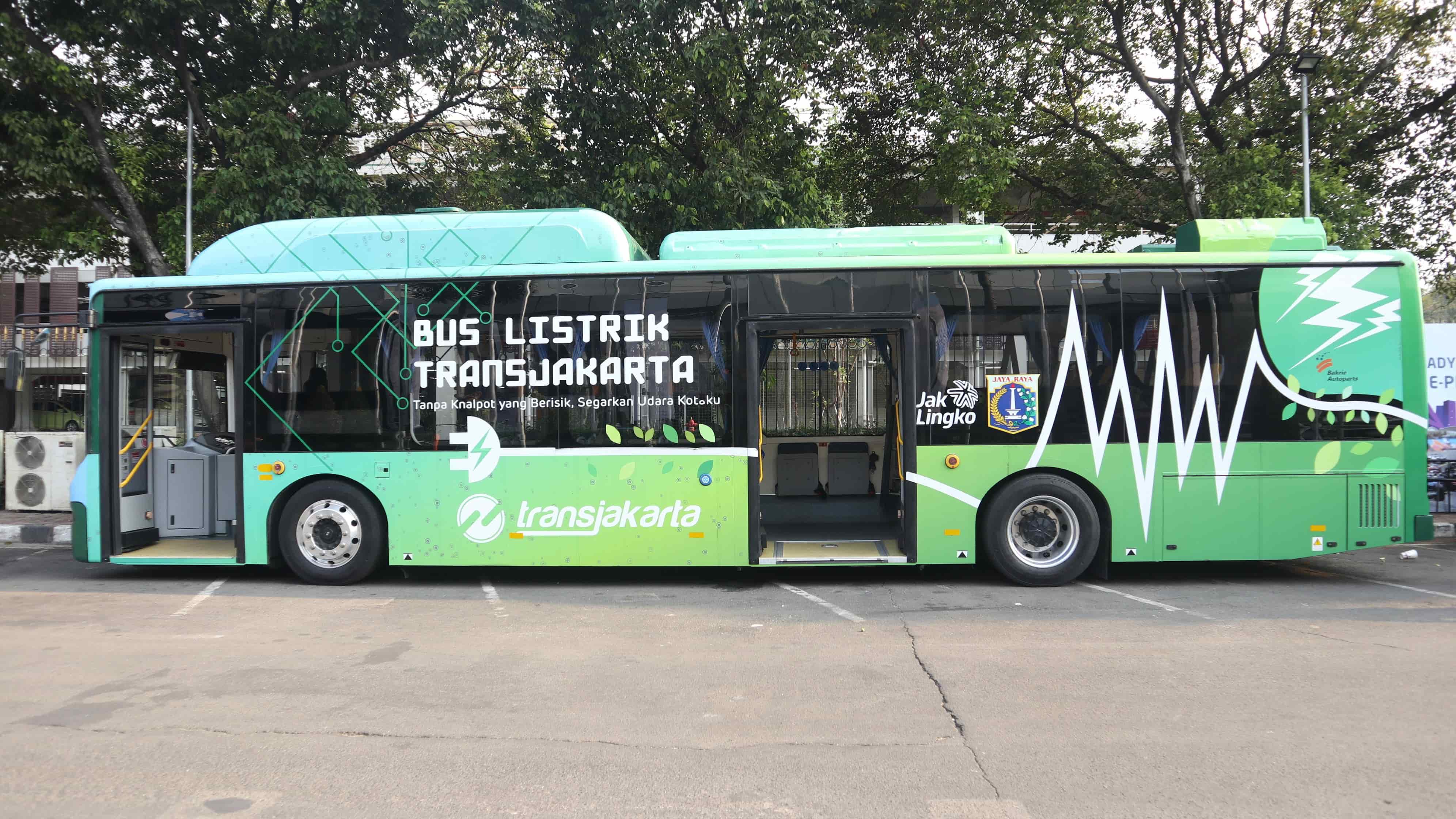
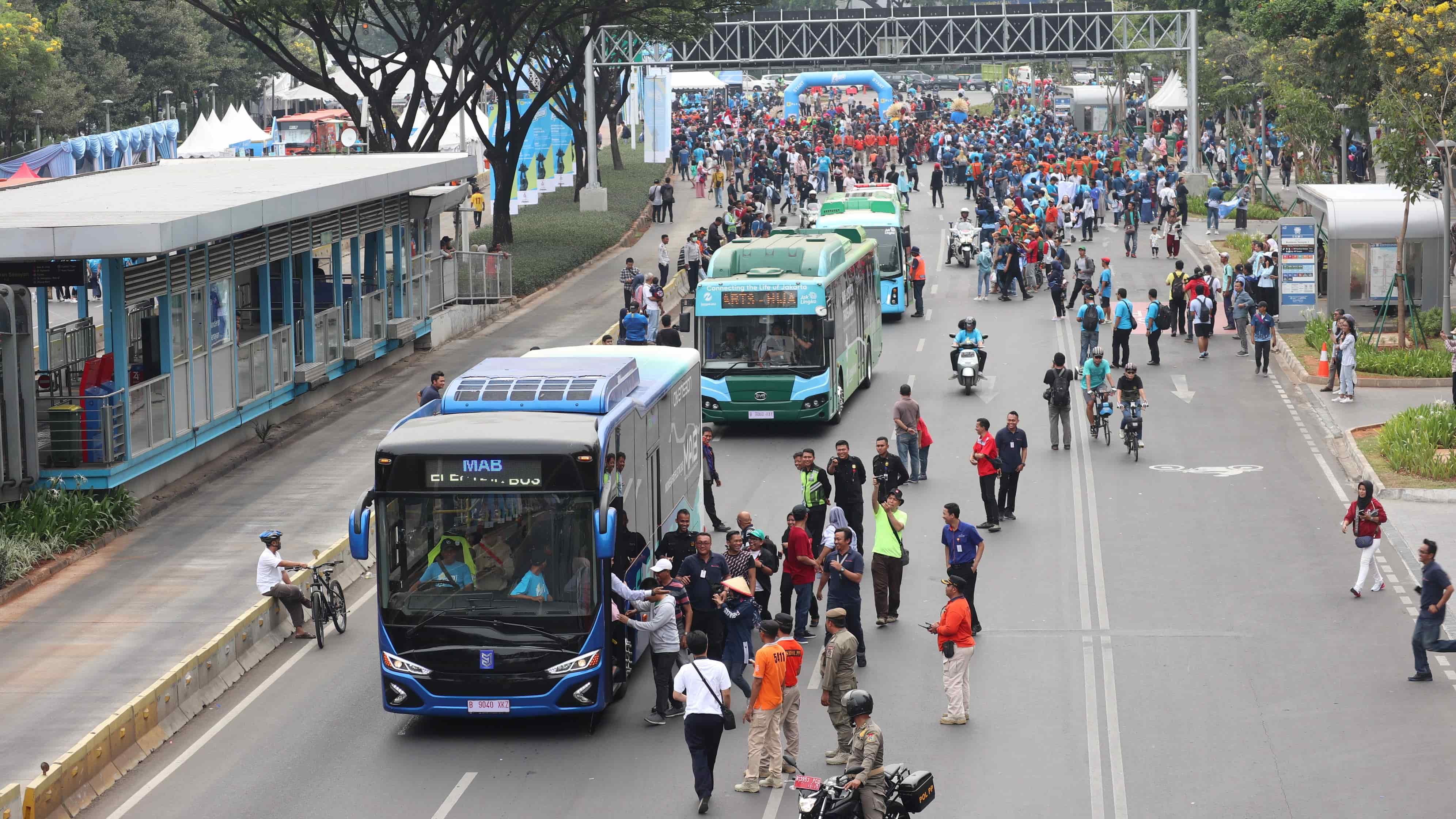
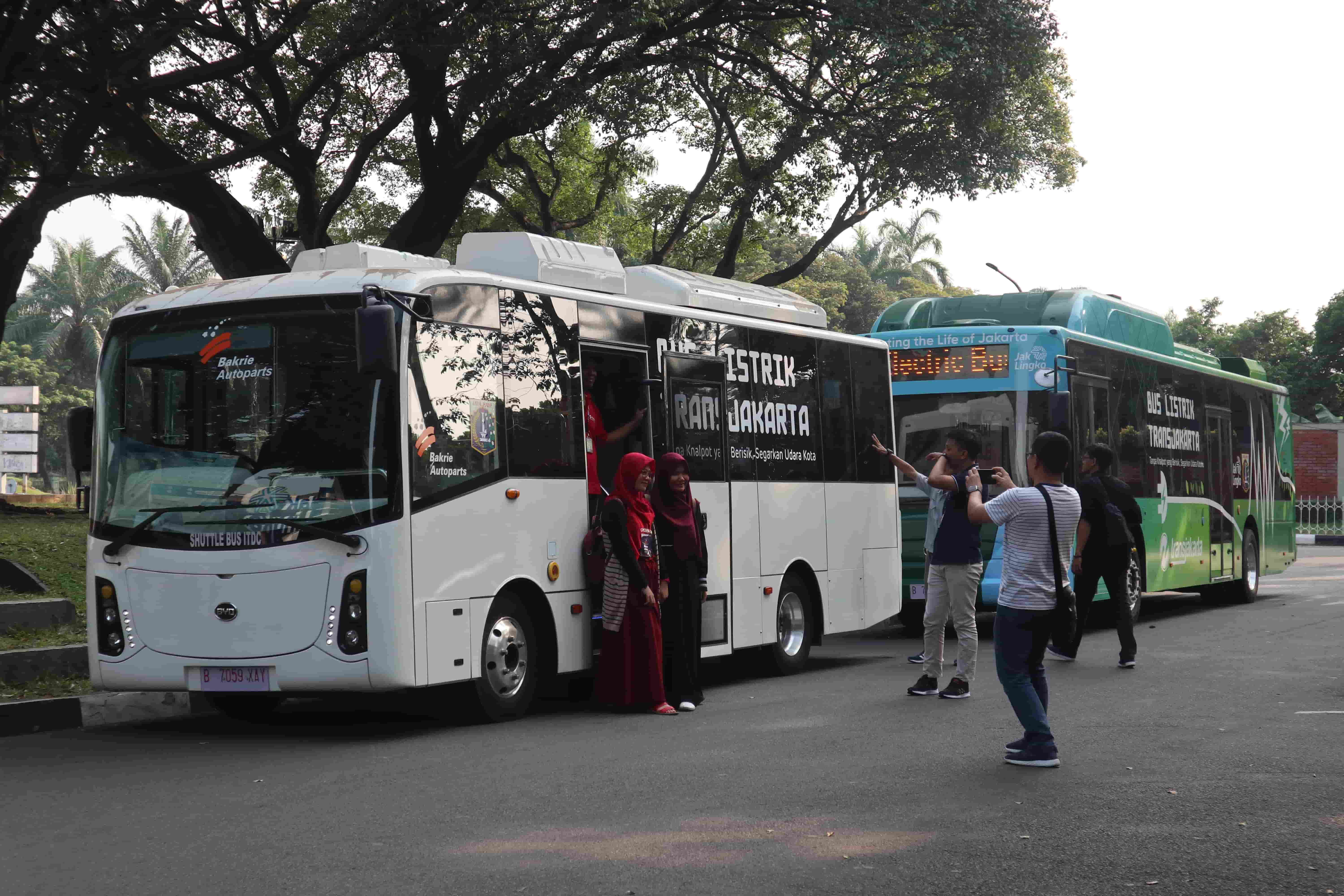
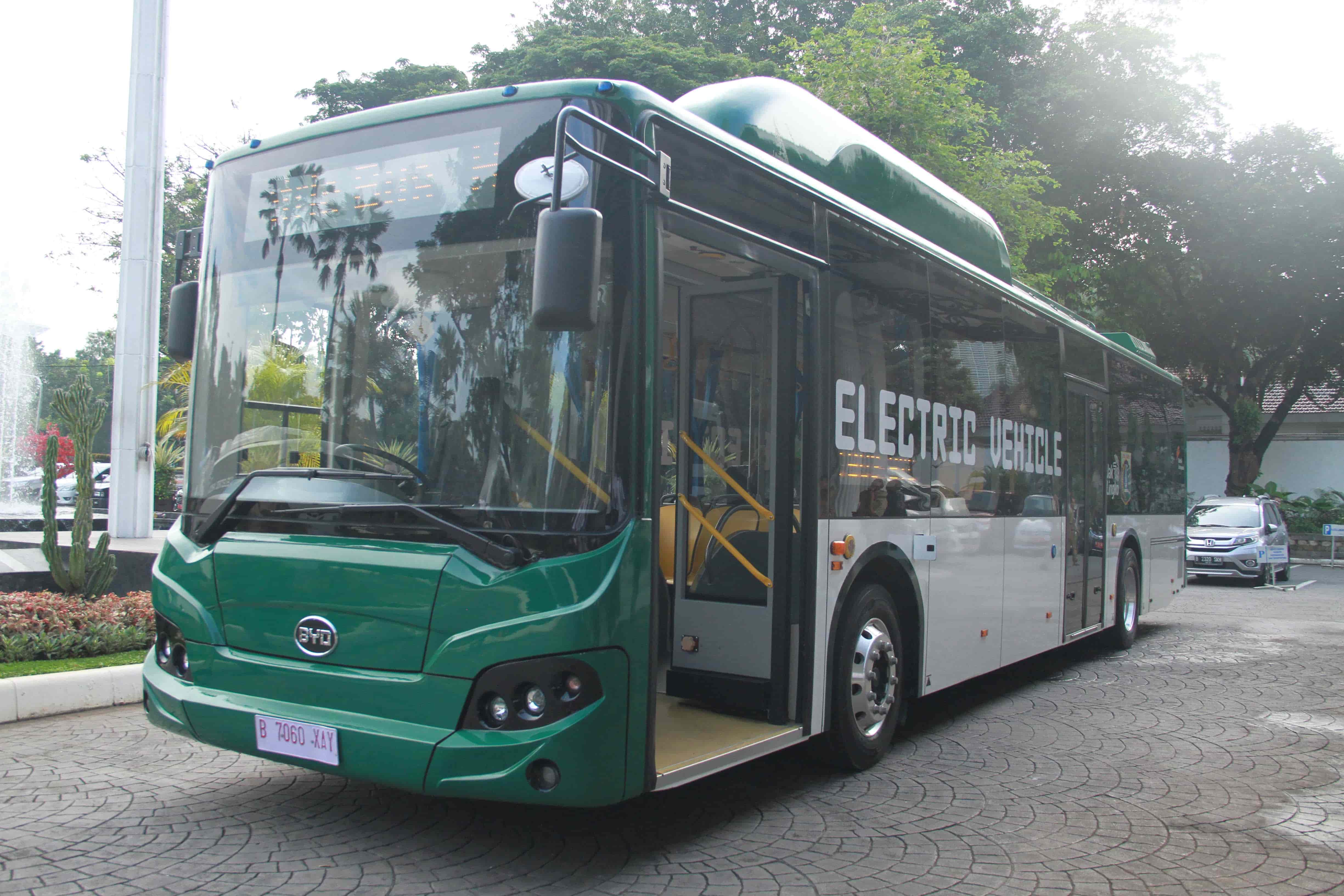
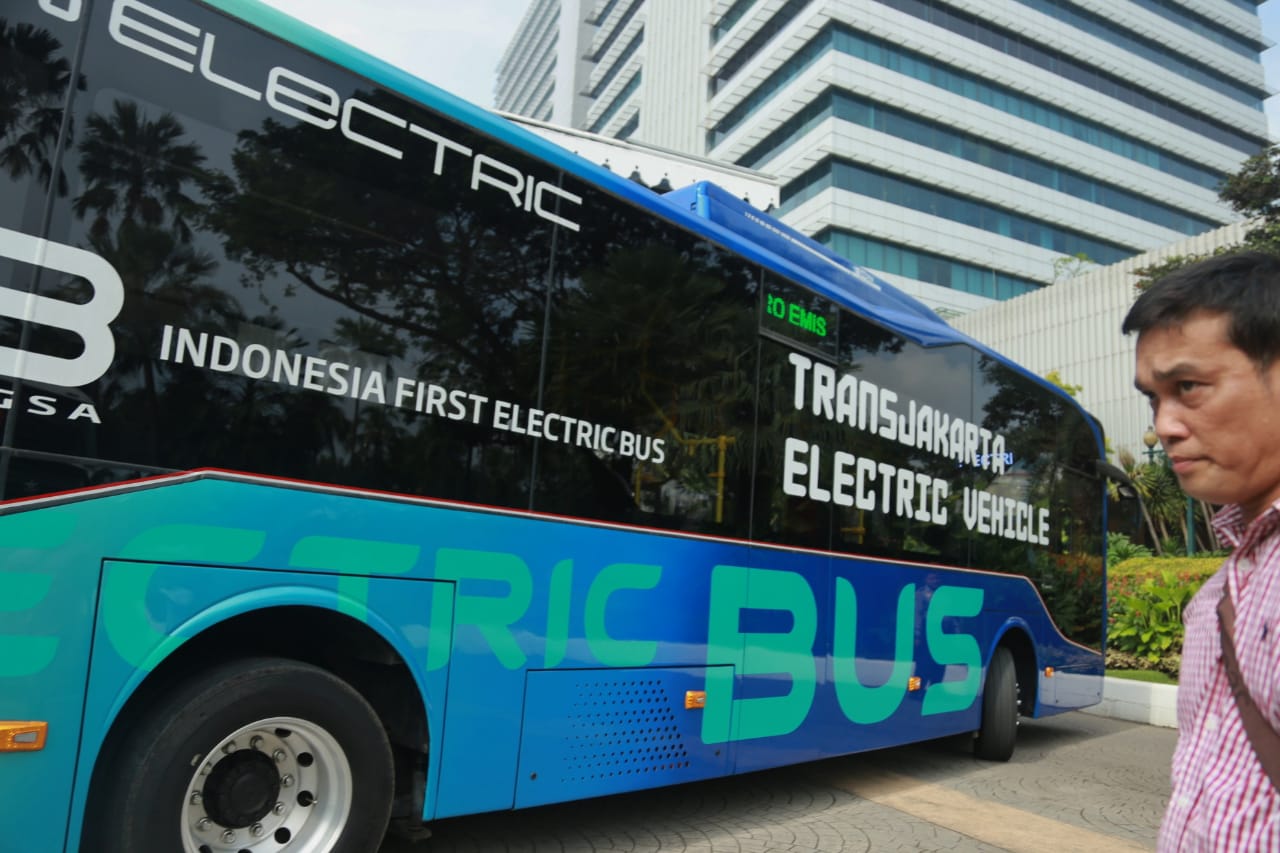
HISTORY
Jakarta is home to the world’s largest public bus system, with 800,000 commuters using the TransJakarta Bus Rapid Transit (BRT) per day. Launched in 2004 as Southeast Asia’s first BRT system, it is now the world’s longest, covering over 244 kilometres. TransJakarta operates 13 main corridors and 155 feeder routes in the Greater Jakarta Area.
Poor air quality is a major issue in Jakarta, posing severe health risks particularly to vulnerable groups. Moving to electric vehicles is a crucial part of the city’s air quality action plan, recognising that clean air is a fundamental right. The project was also supported at the national level, with the Indonesian government unveiling the Presidential Decree on Acceleration of Battery-Electric Vehicles in August 2019.
Just as Jakarta started their journey to transition its bus fleet to zero-emission vehicles, the coronavirus pandemic broke out.Transjakarta had planned to deploy the first 100 e-buses in early 2020, with the aim of improving air quality. Despite the COVID lockdown, Jakarta continued in this work, with online CFF sessions with technical and financial experts in the city giving partners the opportunity to acquire the knowledge necessary to analyse existing routes and prioritise routes for e-bus deployment according to passenger needs.

